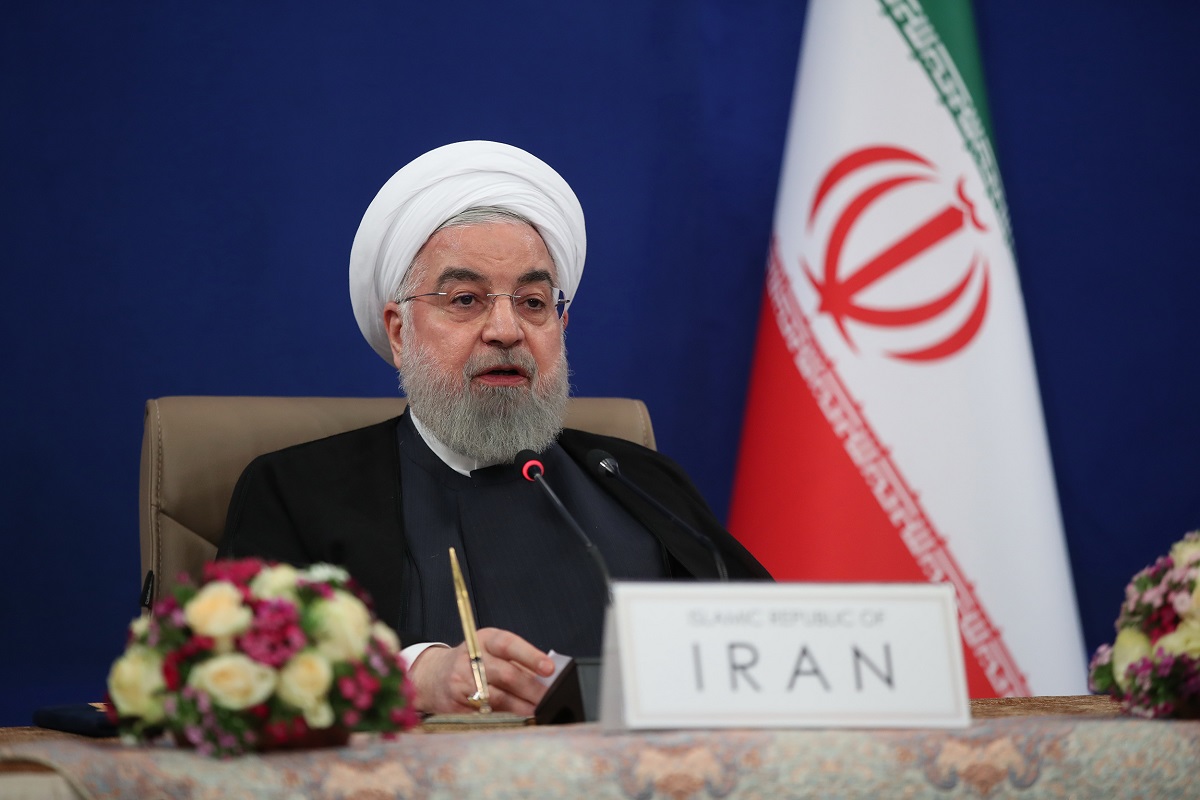First package
While the outgoing President had stumbled while trying to address coronavirus, Mr Biden on Friday unveiled a $1.9 trillion stimulus plan for the economy of an America blighted by the pandemic.
Mr Rouhani said on Wednesday that as soon as the five permanent members of the Security Council ~ the US, Russia, the United Kingdom, Russia and China ~ plus Germany who had joined the 2015 agreement resumed their commitments, so would Iran.

Iranian President Hassan Rouhani (Photo: IANS)
The announcement by Iran that it is prepared to return to the 2015 nuclear deal shepherded by former US President Barack Obama is a welcome development, coming as it does soon after President-elect Joe Biden said he would bring his country back if Teheran resumed compliance.
The statement by Iranian President Hassan Rouhani that his country would agree to a snap return to treaty terms as soon as other parties resumed commitments is therefore welcome. Mr Rouhani said on Wednesday that as soon as the five permanent members of the Security Council ~ the US, Russia, the United Kingdom, Russia and China ~ plus Germany who had joined the 2015 agreement resumed their commitments, so would Iran. President Donald Trump had unilaterally withdrawn the US from the deal in 2018 saying it was one-sided. But a change at the top in Washington, and Mr Biden’s desire to bring the relationship back to pre-Trump levels has been seized upon by Mr Rouhani, whose country has faced crippling sanctions in recent times.
Certainly, the chokehold applied by the sanctions may have played a part in Iran’s announcement for the country has said they are coming in the way of procurement of coronavirus vaccines. While officially there is no bar on procurement of vaccines, clearly the shadow of sanctions has overwhelmed bankers. On Monday, the governor of Iran’s central bank had said the country was unable to access the Covax facility jointly managed by the World Health Organisation and Gavi, the Vaccine Alliance.
Advertisement
While Iran had parked billions of dollars in won-denominated accounts in Seoul to fund vaccine procurement, it has reportedly been told by South Korean bankers they cannot guarantee the funds will not be seized or blocked when payments are processed. Vaccine procurement is of critical importance for Iran, the worst-hit country in the region with more than a million infections and 51,000 plus deaths. Already, the Trump administration’s top official dealing with Iran, Special Envoy Elliott Abrams has advised the incoming President to use sanctions to arm-twist Iran into a deal which not just ensures full compliance of treaty terms, but defangs the threat he believes Teheran poses to the region.
The severity of the sanctions and the urgent need to tie up vaccine supplies, though, are not all of President Rouhani’s problems. Iran’s parliament, dominated by conservatives after a poll in February, passed a bill this month to relaunch enrichment of uranium to 20 per purity and included other legislative measures that if approved would scuttle any deal. The bill must be signed by Mr Rouhani in order to take effect, and his hands were weakened by a decision approving the legislation by Iran’s Guardian Council that settles disputes between parliament and the government. Mr. Rouhani has hinted he may yet not sign the legislation. But clearly matters are on the brink and all parties will have to work together quickly if the 2015 agreement is to be rescued and a humanitarian crisis averted.
Advertisement